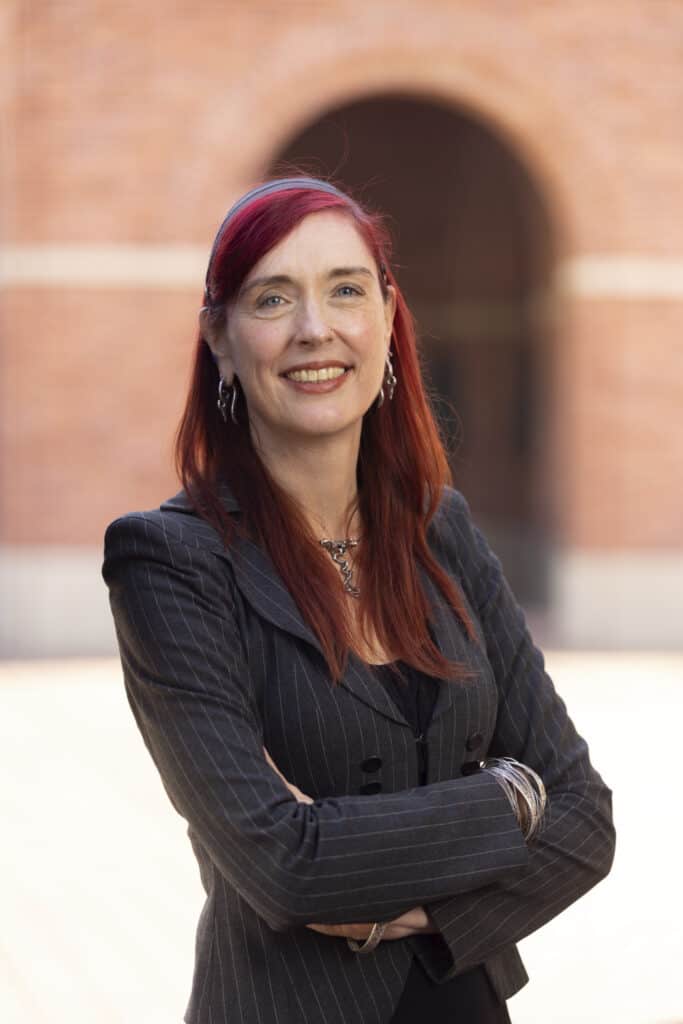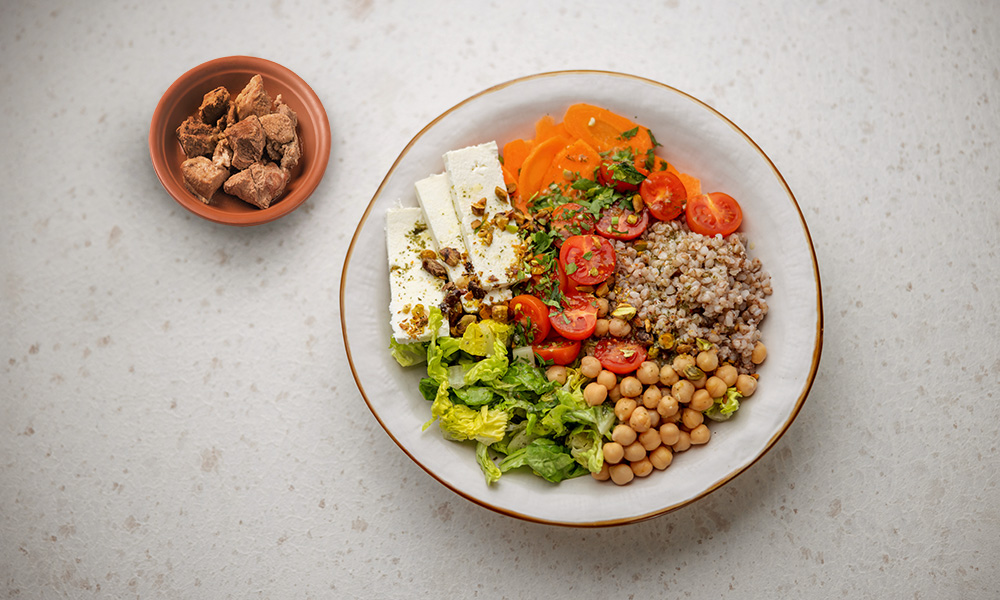The City of West Hollywood has reportedly adopted an ordinance that requires plant-based food to be served at all city events, with meat available only upon request. The city’s goal is to reduce the impact that meat and dairy production has on climate change: Livestock emit anywhere from 11% to nearly 20% of global greenhouse gas emissions that are warming the planet.
I caught up with three USC experts to shed some light on the city’s decision. They also responded to some of the wider questions surrounding meat and dairy production and the health benefits of a plant-based diet.
The Experts
Katherine Baker is post-doctoral fellow at the USC Schaeffer Center for Health Policy and Economics, where she researches the intersection of nutrition and climate change.
Wändi Bruine de Bruin is Provost Professor of Public Policy, Psychology, and Behavior Science at the USC Price School of Public Policy and the USC Dornsife College of Letters, Arts and Sciences. She is also director of the USC Behavioral Science and Well Being Policy Initiative.
Kayla de la Haye is associate professor (research) of Psychology and Spatial Sciences at USC Dornsife and director of the Institute for Food System Equity at the USC Dornsife Center for Economic and Social Research.
Their answers have been edited for length.
Q: What are the environmental impacts from cattle and dairy farming other than greenhouse gas emissions?

Baker: Livestock farming uses large amounts of fresh water. Additionally, livestock farming requires a lot of land. Oftentimes this land needs to be cleared for livestock, which is why livestock farming is a leading cause of deforestation, which contributes to biodiversity loss or extinction of some species. Many farmed animals are also treated with antibiotics, which can runoff into the environment and damage ecosystems. Livestock farming also emits things like ammonia, which can be damaging to human and environmental health.
Q: Which are more effective at reducing meat and dairy consumption: government policies like the one in West Hollywood or free-market solutions, such as plant-based meat?
Bruine de Bruin: Behavioral scientists have shown that setting defaults to recommended options is an effective way to change people’s habits. People end up with the default without having to think much about it. And if they don’t like the default, they can still switch.
de la Haye: It’s the combination of policies with more consumer information and choice that is likely to have the biggest impact on increasing consumption of plant-based foods. Policies like this help to normalize eating more plant-based foods and can nudge us towards these choices. They can also help build up the local supply and procurement of plant-based foods, in turn making them more accessible and affordable.
Q: How do you promote eating plant-based foods when they’re not the default?

Bruine de Bruin: In a recent study, we found that labeling meat-free food as “healthy”, “sustainable” or “healthy and sustainable” — rather than “vegan” or “plant-based” — doubled the likelihood of it being chosen, especially by meat eaters. Thus, if organizations can’t set a vegan default, they can use labeling to promote healthy and sustainable food options.
Q: Are plant-based and vegan eating styles healthy?
Baker: Appropriately planned plant-based, vegetarian and vegan eating styles can be healthy for people of all ages, life stages, and activity levels. In fact, plant-rich diets can offer health benefits, including a lower risk of certain diseases like heart disease and some cancers.
When selecting plant-based foods, aim to fill up on things like vegetables, fruits, beans, nuts and seeds, whole grains, lower-processed protein options, like tofu and tempeh, and healthy fats like nuts, avocado, and plant or seed oils, like olive, canola or sesame oil. Fortified, protein-rich non-dairy milk, like soy milk or pea milk, can also be a great swap for dairy milk. Just be sure to check the labels for calcium and vitamin D if you rely on milk for these nutrients, as sometimes organic plant-milks may not have them.
Q: What is the relationship between the kinds of food we eat and food security?
de la Haye: Climate change and resource depletion are making it increasingly difficult to grow the food we need to feed 8 billion people, and is causing global upticks in food insecurity, especially in vulnerable communities. So, consuming more environmentally sustainable plant-based diets is critical to making sure our food system can survive and not create crises in food insecurity across the globe.

Locally, rates of food insecurity have been rising, and 13% of U.S. households, and 26% of households in Los Angeles County, are now food insecure, meaning they lack sufficient money for food and may skip meals, or even go without eating for a day.
Making healthy foods accessible and affordable for everyone, especially those with lower incomes, is critical to solving this food insecurity crisis. Plant-based foods can be more affordable than meat. Policies and programs that help people make more plant-based food choices, and that ensure plant-based choices are affordable and accessible for everyone could have a positive impact on food security.
Q: Can properly raising cattle on pastures instead of feedlots reduce carbon emissions?
Baker: Raising cattle on pasture is not the norm in the United States. The majority of livestock in the U.S. are raised on factory farms. Factory farms emit massive amounts of greenhouse gasses and have other harmful environmental impacts.
Even if pasture-raising cattle were more common in the US, some studies suggest that pasture-raised and grass-fed cattle emit more greenhouse gasses than factory-farmed cattle. Pasture-raised cattle tend to gain weight more slowly and are kept alive longer before slaughter, leading to more greenhouse gas emissions. Given current norms in current production methods, reducing beef and dairy production overall is still an important way to reduce the environmental impacts of our food system.
Disclosure: All three of the experts quoted in this article are either vegetarians or vegans.





